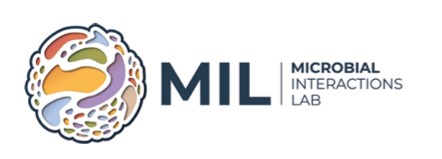The Microbial Interaction Laboratory (MIL) at the IDM is a continent-leading platform dedicated to advancing microbiome science in Africa. Recognising the significant underrepresentation of African microbiomes in global studies and databases, the MIL is building a vibrant research ecosystem that enables scientists to explore the microbe–host interactions shaping the health of African populations across the life course.
As a continental resource, MIL fosters collaboration among researchers, clinicians, and healthcare professionals, driving innovation in microbiome science while ensuring Africa’s representation in global datasets. Through their annual masterclass, the MIL plays a pivotal role in developing early-career African scientists and advancing translational microbiome research.

For more information, contact -
Equipment
- Anaerobic Workstation: For cultivating and studying. anaerobic microbes
- Automated Liquid Handler: For high-throughput sample. preparation and processing
- Illumina MiSeq Sequencer: For next-generation sequencing and microbiome analysis.
- Gel Electrophoresis Apparatus: For DNA/RNA/protein separation and analysis
- Pioreactor: For real-time microbial growth monitoring and experimentation.
Additionally, the MIL houses a fully functional BSL2+ tissue culture facility, equipped with various mucosal cell line models to study microbe-host interactions. All equipment is available for shared use to support microbiome research and innovation.
Services
- Microbiome Profiling
- High-Throughput Sequencing
- Data Analysis
- Culturomics Services
- Mucosal tissue culture
- Educational Workshops

